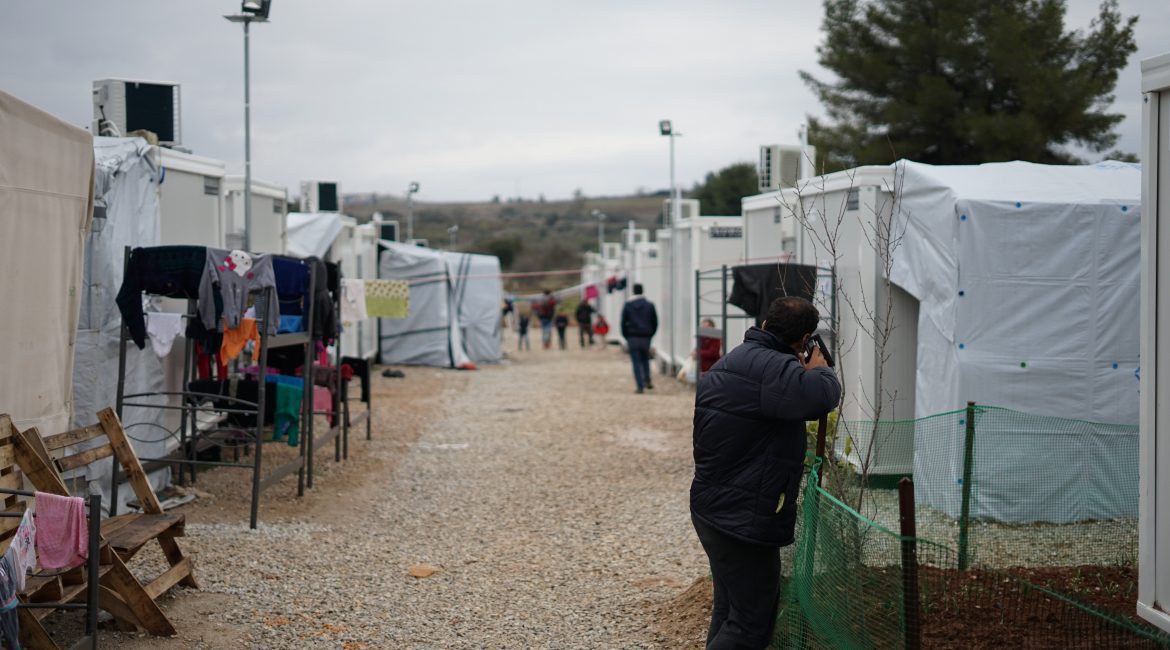Activists, local humanitarian organizations and camp managers for the displaced people in northwestern Syria have warned that the mechanism for bringing humanitarian aid to Syrians through the Bab al-Hawa border crossing point with Turkey, under pressure from Russia, has stopped. That will cause a major humanitarian catastrophe, and a real famine which will affect more than a million and a half displaced people who depend for their livelihood on food aid provided by the “World Food System” program at the United Nations.
About 4 million Syrians (half of them are displaced in camps in northern Syria) are awaiting what will be issued by the Security Council session, on July 10, on the decision to extend the transfer of humanitarian aid across the border, in the face of Russian threat of a veto against the resolution. The veto would mean depriving more than 3.5 million Syrians, who benefit from humanitarian aid arriving from the United Nations. If Russia could prevent the extension of the Security Council resolution, this would worsen the economic and living situation in northwestern Syria, and cause a major humanitarian disaster and real famine.
The director of the "Al-Amal" refugees camp near the Deir Hassan area and the Turkish border, said that "the cessation of humanitarian aid provided by the United Nations to the Syrians, specifically the displaced, means that everyone is facing scenes of death, exacerbation of diseases and misery among the displaced who have no means." He explained that he has been running the camp for five years,, housing about 700 families displaced from the villages of the southern countryside of Idlib and the northern countryside of Hama, and “most of these families depend primarily on what they receive of aid and food baskets from humanitarian organizations. The international community must take into account the conditions of these displaced people, do justice to them, maintain the continuation of the flow of humanitarian aid, and stand up to Russia, which demands the closure of Bab al-Hawa crossing point.”
For its part, the Syria Response Coordinators team, working in northwestern Syria, recently issued a statement saying that “the consequences of closing the (Bab al-Hawa) border crossing point with Turkey will lead to the deprivation of more than 2.65 million people from food aid, denial of access to clean and potable water, in addition to the interruption of bread subsidies in more than 650 camps for the displaced, depriving more than one million people of access to bread on a daily basis."
The United Nations Commission of Inquiry on Syria recently stressed that “at a time when the country is facing the worst economic and humanitarian crisis since the beginning of the conflict in Syria, the international community must protect the current life-saving (cross-border) aid and increase its funding pledges to support this aid.
US Assistant Secretary of State for Near Eastern Affairs, ambassador Barbara Leaf, who visited the border region with Turkey recently, said that extending the Security Council's mandate for Resolution 2585 to deliver cross-border aid to Syria is central to US strategy. She added that “humanitarian needs in Syria are exacerbated by the pandemic, historical levels of drought, decades of mismanagement and corruption, and the terrible effects on global food security as a result of Putin’s war on Ukraine.” This comes after Russia's envoy to the Security Council threatened, in late May, to stop extending the cross-border aid mechanism next summer, a mechanism that requires the council's unanimous approval to extend it every year.
Russia had pressured the Security Council and issued a resolution, on July 9, 2021, to restrict the entry of humanitarian aid through Bab al-Hawa crossing point only, after it was entering from 4 crossings. Bab al-Hawa crossing point is the only “lifeline” for nearly 4 million people, who live in the Syrian opposition-controlled areas in northwestern Syria, including more than 1,5 million displaced people from different regions in camps on the Syrian-Turkish border, and they do not have any job opportunities, and more than 85 percent of them live below the poverty line, according to international statistics and human rights activists.

